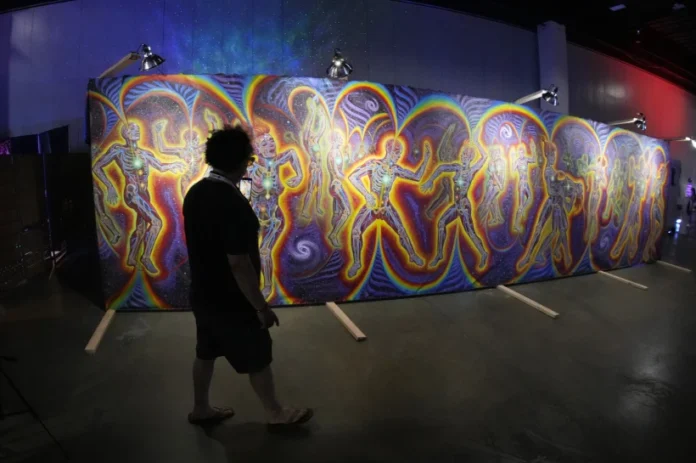CANBERRA (AP) Dr Majid Khan -In a groundbreaking move, Australia has become the first country to permit psychiatrists to prescribe certain psychedelic substances to patients suffering from depression or post-traumatic stress disorder (PTSD). As of July 1, Australian physicians have the authority to prescribe MDMA, commonly known as ecstasy, for PTSD treatment, while psilocybin, the psychoactive component found in psychedelic mushrooms, can be administered to individuals with hard-to-treat depression. The Therapeutic Goods Administration of Australia has included these drugs on the approved medicines list.
This decision, announced in February and now in effect, has taken many scientists in Australia by surprise, positioning the country “at the forefront of research in this field,” according to one scientist. Chris Langmead, deputy director of the Neuromedicines Discovery Centre at the Monash Institute of Pharmaceutical Sciences, expressed that there have been minimal advancements in the treatment of persistent mental health issues over the past half-century.
This progressive move comes amidst a growing cultural acceptance of psychedelics and follows similar developments in the United States. Oregon became the first state to legalize the adult use of psilocybin, and in 2022, Colorado voters decriminalized psilocybin. Recent reports also revealed that President Joe Biden has shown openness to the benefits of psychedelics as a form of medical treatment in conversations with his brother.
While the U.S. Food and Drug Administration designated psilocybin as a “breakthrough therapy” in 2018, thus expediting its development and review, the American Psychiatric Association has not yet endorsed the use of psychedelics in treatment, citing the absence of a final determination by the FDA. Although researchers have received federal grants and the FDA has issued draft guidance for clinical trials testing psychedelic drugs, medical experts worldwide, including Australia, have urged caution, emphasizing the need for further research into the drugs’ efficacy and potential risks, such as hallucinations.
Dr. Paul Liknaitzky, head of Monash University’s Clinical Psychedelic Lab, acknowledges the concerns surrounding premature clinical service, insufficient evidence, inadequate training, affordability, and oversight of treatment and patient outcomes. Despite these reservations, the opportunity for Australians to access these drugs for specific conditions is unprecedented, offering hope for more personalized and effective treatments free from the constraints of clinical trials and rigid protocols.
However, it should be noted that the availability of these psychedelic treatments in Australia comes at a significant cost, with an estimated price of approximately $10,000 per patient. The expense, coupled with the ongoing need for extensive research, highlights the complexities involved in integrating psychedelics into mainstream mental health care.
Australia’s groundbreaking decision has opened up new possibilities for the treatment of mental health conditions, pushing the boundaries of traditional therapies and signaling a major shift in global drug policy. As the outcomes of this pioneering approach unfold, the world will be watching closely to evaluate the impact and efficacy of psychedelic treatments on the well-being of individuals suffering from depression and PTSD.






